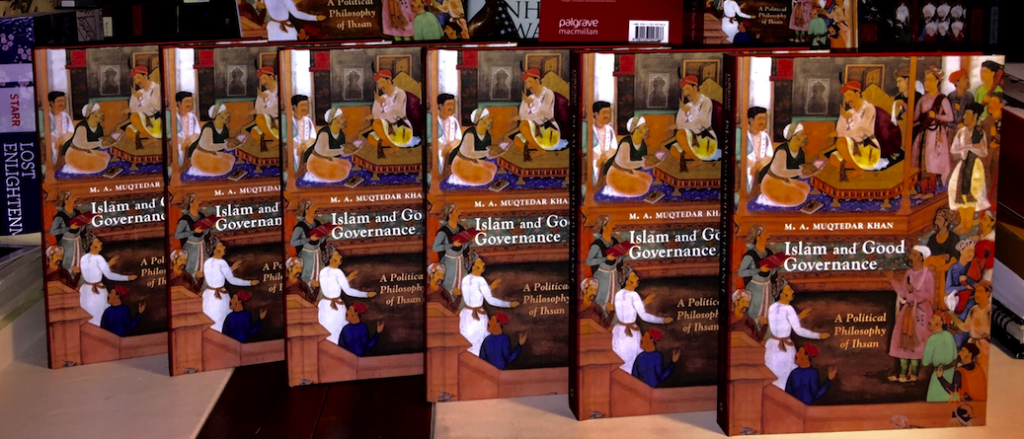
Tiger by the Tail
While dealing with the current Iran crisis, U.S. President Donald Trump must realize that the danger to U.S. national interests comes not just from Iran’s regional ambitions but also from the manner in which Israel and Saudi Arabia are trying to counter the Islamic Republic. Riyadh is the primary actor pushing Washington to confront Tehran right now. However, the Israelis have tried for decades to focus U.S. attention on the Iranian nuclear program in order to avoid a serious conversation about the stalled Mideast peace process and the growth of illegal settlements in the West Bank. Together, the Saudis and Israelis have put the U.S. in a confrontational position from which it would be very difficult for Washington to extricate itself. Just recently Israeli Prime Minister Benjamin Netanyahu tweeted this shared intent.
Even though the United States does not want to go to war with Iran, Saudi imperatives could trigger an unintended armed conflict, which we Americans would have to deal with for a long time to come. Conservatives like Sen. Tom Cotton, who thinks the U.S. can win a war with Iran in two strikes, further inflame the situation at home, encouraging indiscretion over deliberation. Trump was against the Iraq war and is fundamentally opposed to major interventions in the Middle East and elsewhere. His withdrawal from The Joint Comprehensive Plan of Action — the “nuclear deal” with Iran — and subsequent imposition of additional sanctions are designed to force Iran to return to the negotiating table. Trump wants a better deal with Iran, not war.
But his allies, Israel and Saudi Arabia, who have received enormous support and cooperation from his administration, want to neuter Iran. They both seek to eliminate Tehran capacity to have any geopolitical impact in the region. They see regime change as the way to alter Iran’s foreign policy behavior. It appears that Trump’s allies and some elements in his administration (Secretary of State Mike Pompeo and National Security Adviser John Bolton) are getting ahead of the president’s thinking and have precipitated a dangerous situation, increasing the risks of war.
Trump now has a tiger by the tail. He cannot hold on to it, he cannot let it go. If he backs down, then he will look weak and Iran will feel emboldened to pursue its efforts to change the regional order in the Middle East. But if the president continues on this path, sends 120,000 troops to the region, and allows Bolton to play point on this issue, then he risks triggering a war that in nearly everyone’s opinion would be far more devastating than the Iraq war.
The Iraq War and its Consequences
The Iraq war was catastrophic at many levels. According to the Congressional Budget Office, the 8-years long military intervention cost more than $2.4 trillion — funds that Washington could have used to eliminate student debt and build a universal health care system. Nearly 4,500 Americans and over 288,000 Iraqis have been killed as a result of the war. It gave birth to the monstrous ISIS or Daesh, which brought terror, death, and mayhem to four continents since 2014.
Millions of Syrians have become refugees and two major Arab countries — Iraq and Syria — are shattered states. The war also spotlighted the hidden cleavages in the Western alliance. France and Germany broke with the United Kingdom and United States and did not join the “coalition of the willing”. Since then, Transatlantic relations have only weakened; a war with Iran may break those ties.
The United States has also suffered tremendously. Its national debt has significantly increased. Washington has lost prestige, influence and power as a result of this war. The Middle East is now composed of many failed states and can be described as a failed region. The rise and fall of Daesh has also unleashed forces in the West which are detrimental to democracy.
Along with xenophobia, Islamophobia has moved front and center in many European nations. Daesh’s attacks in Europe have played a significant role in unleashing Far-Right extremist forces on the continent. The consequences of the Iraq war are still unfolding, and its impact on the global order is profoundly destabilizing. The current crisis with Iran is just one of the many unanticipated side effects of the Iraq war.
In the short term, the United States and its allies will win a military conflict with Iran. But in the long term, the cost to the region, the global economy, and the global order will be far reaching. To my mind, the Saudi-Yemeni war is a good metaphor for what a U.S.-Iran war could look like, albeit on a different scale. Essentially, a stronger power with vastly more resources unable to overcome an impoverished nation with determination, with all those involved bleeding lives, resources and reputation.
The Way Forward For the United States
The United States must come out of this Iran crisis without emboldening Iran and without risking its interests and its allies’ interests in the region. It’s a tough ask, but I have two recommendations to make it possible. First, Trump should fire Bolton to signal to Iran and others that Washington is not interested in starting a war with Iran. Bolton has for decades argued that Iran should be bombed and also took $40,000 as recently as 2016 from Mujahideen-E-Khalq (MEK), an Iranian rebel group that Washington considered a terrorist organization until 2012. Iran and others interpreted his appointment as national security advisor as an expression of Trump’s openness to exercising a military option vis-a-vis Tehran.
There is a near unanimous view that Bolton is the man driving the movement toward war. His departure will alleviate that anxiety. Firing Bolton would signal to Iran, the Gulf nations, and Israel that Washington is looking for other means to deal with Iran. This reduced probability of war will force all parties to consider negotiations.
Bolton’s tough demands of Kim Jong Un partly derailed the North Korean dialogue. Given an opportunity he would sabotage any dialogue between Washington and Tehran. Advisers in the Trump administration come and go frequently anyway. Thus, getting rid of Bolton should not be considered a huge price to pay for peace.
Second, Washington should call on its NATO ally Turkey and Qatar to initiate a dialogue between Iran, the Gulf Arab states (Saudi Arabia and the United Arab Emirates) and Israel, with the UAE acting as proxy for Israel. If Iran is willing to work with these nations and assuage their immediate fears, the next step could be direct U.S.-Iran talks that Trump desires. While its rhetoric may suggest otherwise, Tehran realizes that in order to avoid war and end the excruciating pain of economic sanctions, it must once again negotiate with Washington. Through these moves, the Trump Administration can bridge the gap between its policy of maximum pressure and how to bring the clerical regime back to the negotiating table.
Dr. Muqtedar Khan is a Senior Fellow with the Center for Global Policy (CGP), and a Professor in the Department of Political Science & International Relations at the University of Delaware. Dr. Khan is the author of Islam and Good Governance: A Political Philosophy of Ihsan – his latest book that was published by Palgrave on April 9, 2019. His website is www.ijtihad.org and he tweets at @muqtedarkhan.
Click to buy Dr. Khan’s Latest Book: Islam and Good Governance: A Political Philosophy of Ihsan











I have written comments on WP and NYT stories: Analysts talk of any conflict “spinning our of control” and damaging to the region. The never ever describe what that damage could be. I predict a localized Armageddon.: A smoldering Saudi, a ruined Iran, and a ruined Gulf sheikdoms with their skylines. Among the early casualties will be 10K to 20K American soldiers resident in the area.
We need a totally realistic and descriptive account of horrific consequences of attacking Iran.